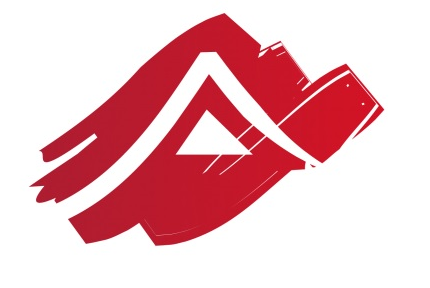Technological transformation has proven to be a dual-edged sword. It has brought variety of improvements in our daily lives, but at the same time it has created new challenges, which tremendously impacted the younger generations. In the following article we provide synthesis of Deloitte’s research 2019 regarding the “Societal discord and technological transformation”, focusing on Millennials and Gen Zs.
The 2019 report is based on the views of 13,416 Millennials questioned across 42 countries and territories, and 3,009 Gen Zs from 10 countries.
KEY FINDINGS
- Economic and social/political optimism is at record lows. Respondents express a strong lack of faith in traditional societal institutions, mass media and social progress. Moreover, they are not particularly satisfied with their financial situation, job, government, business leaders, social media, or usage of their data.
- Millennials value experiences. They prioritaze to travel and help their communities. Furthermore, they will support companies that align with their values.
- Millennials are skeptical of business’s motives. Respondents do not think highly of leaders’ impact on society, their commitment to improving the world, or their trustworthiness.
Every generation is shaped by its circumstances. Millennials are not different, but their priorities have evolved, or at least have been delayed by financial or other constraints.
The following priorities and aspirations are seen on the top of their list: see/travel the world (57%), earn high salary/be wealthy (52%), buy own homes (49%), make positive impacts on community/society (46%) and have children/start families (39%).
Furthermore, what is equal for both generations, is their top concern – the Climate change and Environment protection, with 29% of the respondents having it top ranked, followed by income inequality with 22%. It’s also interesting that there is correlation between level of education and type of concern. High school graduates are more likely to select personal concerns such as unemployment, personal safety and health care and University graduates are more likely to choose societal concerns such as political instability, climate change and cybersecurity.
THE GIG ECONOMY ALTERNATIVE
Millennials indicated they would not hesitate to do freelance or contract work. Overall, the gig economy appeals to four in five Millennials and Gen Zs. But only 6% of Millennials said they have chosen to be part of the gig economy instead of working full time; 50% said they would consider it, and 61% would take gig assignments to supplement existing employment. The top attractions for Millennials and Gen Zs in the gig economy are earning more money, flexible working hours and achieving better work/life balance. But they are afraid of the negative sides: having unpredictable income, unpredictable working hours and having difficulties to make plans for the future.
GAINING NEW SKILL SET
The way Millennials and Gen Zs are acquiring the needed new skills set is a source of debate. Millennials say business (30%) has the greatest responsibility for preparing workers, followed by educational institutions (24%). Gen Zs rely more on colleges, universities, and secondary and vocational schools (36%), and then employers (25%). The two generations agree that individuals through self-education and ongoing professional development came next, and that government comes last for the responsibility for developing workers.
However, surveyed business leaders think differently. They were more likely to say responsibility to prepare for Industry 4.0 falls on individuals, government and schools rather than business itself.
Based on a report from World Trade Organization 2019, the current pace of change requires following the direction of a skills-based, rather than degree-based labor market, which is a much more dynamic variable. Study made in China indicates that the skills that have seen the sharpest increase can be divided into four categories:
1. Functional skills (e.g. marketing, finance, programming)
2. Soft-power skills (e.g. leadership, communication, management)
3. Digital skills (e.g. social media, app development, big data)
4. Value-added skills (e.g. languages, international experience)
We believe that neither just a University degree, nor soft or technical skills can stand alone.
Instead, the combination of them is what brings professional competence in today’s labor market.
BUSINESSES INVESTING INTO LOYAL EMPLOYEES
Overall, Millennials and Gen Zs start and stop relationships with companies for personal reasons, usually related to a company’s positive or negative impact on society and/or the environment. For instance, 42% of Millennials begun/deepened a business relationship because they perceived a company’s products or services to have a positive impact on society and/or the environment. This is followed by the perception of company’s ethical behaviour, ability to protect data and their advertising campaign, respectively. Moreover, Millennials find unethical company’s behaviour, big amount of data requests and the behaviour of the company’s leader to be the most common reasons to stop/lessen a business relationship.
Some of the suggestions for businesses to make more loyal employees and maintain positive business relationships with Millennials and Gen Zs include:
- Balance profit with protecting the planet and helping to solve society’s most challenging problems. Demonstrate internally and externally how they are making the world a better place.
- Educate people throughout their organizations to encourage behaviours and attitudes that support their business’s priorities.
- Collaborate with other businesses, government and educators to transform learning and enable individuals to access the skills they need to meet future job demands.
- Examine their ethics and behaviour and ask whether they’re intruding too far into people’s lives.
- Protect employee’s data.
Millennials and Gen Zs make up for more than half the world’s population and, together, account for most of the global workforce. Being that said, it is valuable for employers to align with the new generation’s values and provide professional opportunities for employees to grow and develop internally and put company’s focus on Corporate social responsibility (CSR) and sustainability. The companies that will succeed in attracting the talents of the new generations will also have bright future themselves.
Pierre MAURIN Partner ALHAMBRA International
Sara MIHAJLOSKA Junior Consultant ALHAMBRA International


